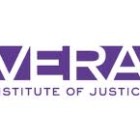
A controversial anti-bullying bill that faltered in Tennessee’s General Assembly last year seems to be set for a comeback as lawmakers convene Tuesday. The measure -- pushed by David Fowler, a former state senator and president of the Family Council of Tennessee (FACT) -- would alter the current anti-bullying laws in the state, effectively creating a loophole that would protect students from reprimand for expressing their “religious, philosophical, or political views” providing that that they do so without physically threatening another student and/or his or her property. Additionally, the bill would disallow anti-bullying programs from using materials or training policies that “explicitly or implicitly promote a political agenda [and] make the characteristics of the victim the focus rather than the conduct of the person engaged in harassment, intimidation or bullying.”
In the December 2011 FACT newsletter, Fowler said that the purpose of the proposed legislation is to protect “the religious liberty and free speech rights of students who want to express their views on homosexuality.” In a recent Chattanooga Times Free Press article, he said that the intent of the bill was to “stop bullying” without creating “special classes of people who are more important than others.”
Both Fowler and the proposed legislation have come under fire from many gay rights activists, with several opponents of the bill saying that it would give students a “license to bully” gay teenagers. “This kind of legislation can send a message that it’s OK to hate and we’ll even give you religious sanction for it,” said Chris Sanders of the Tennessee Equality Project. “As long as you say it for religious reasons, you’ve got backup.”
On a recent FACT radio broadcast, Fowler said “the purpose of bullying statutes is to prevent people or the property being harmed, not their mere sensibilities of being offended.”
According to a spokesman for state Sen. Jim Tracy (R), who sponsored the bill last year, members of the Tennessee Legislature are “reviewing the legislation,” and seeking to “narrow” the “very broad” bill in its current incarnation.









